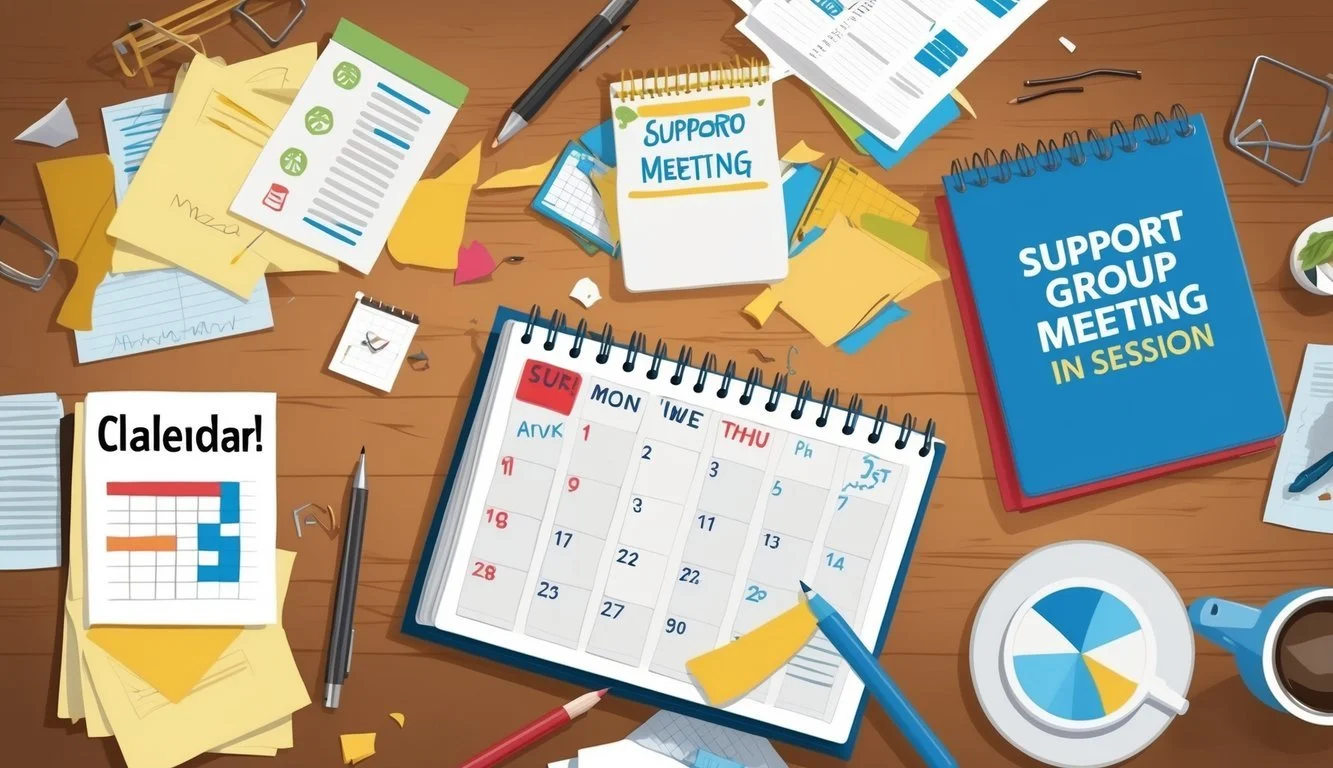Overcoming ADHD Impulsivity Shame: Strategies for Healing and Self-Compassion
ADHD impulsivity often leads to feelings of shame and regret. People with ADHD may act or speak without thinking, resulting in social missteps or poor decisions. These impulsive behaviors can damage relationships, careers, and self-esteem over time.
Recognizing the link between ADHD, impulsivity, and shame is an important step in managing symptoms and improving quality of life. While impulsivity is a core trait of ADHD, the resulting shame is not an inherent part of the condition. With proper understanding and coping strategies, individuals can learn to mitigate impulsive actions and process feelings of shame in healthier ways.
Addressing ADHD-related shame requires a multifaceted approach. This may include therapy, medication, mindfulness practices, and building a support network of understanding friends and family. By developing self-compassion and reframing negative self-perceptions, those with ADHD can reduce the impact of shame on their daily lives and overall well-being.
Understanding ADHD Impulsivity
ADHD impulsivity involves difficulty controlling immediate reactions and considering consequences before acting. It stems from neurobiological factors affecting executive functions in the brain.
Definition and Characteristics
ADHD impulsivity refers to a tendency to act without thinking or planning. People with ADHD may struggle to pause and reflect before taking action. Common impulsive behaviors include:
• Interrupting others during conversations • Blurting out answers before questions are finished • Making rash decisions without considering outcomes • Taking unnecessary risks • Having trouble waiting for turns
These impulsive actions often occur quickly, before the individual can stop themselves. For many with ADHD, impulsivity feels automatic and hard to control.
Neurobiological Underpinnings
ADHD impulsivity has roots in brain structure and function. Key areas involved include:
• Prefrontal cortex: Responsible for impulse control and decision-making • Basal ganglia: Regulates motor control and impulses • Neurotransmitters: Imbalances in dopamine and norepinephrine affect impulse regulation
Brain imaging studies show differences in these regions in people with ADHD. The prefrontal cortex may be smaller or less active. Connections between brain areas can also be altered.
These neurobiological factors make it challenging for individuals with ADHD to pause and think before acting. Understanding the brain basis of impulsivity helps explain why it can be so difficult to control.
Impact of Impulsivity on Individuals with ADHD
Impulsivity significantly affects various aspects of life for those with ADHD. It influences daily activities, academic and professional performance, and interpersonal relationships.
Challenges in Daily Life
Individuals with ADHD often struggle with impulsive decision-making. They may make quick choices without considering consequences, leading to financial difficulties or risky behaviors. Impulse buying is common, resulting in unnecessary purchases and potential budget issues.
Time management becomes problematic due to impulsive task-switching. People with ADHD might start multiple projects simultaneously but struggle to complete them. This can create a cluttered environment and unfinished responsibilities.
Impulsivity can also impact eating habits. Some individuals may overeat or choose unhealthy foods on impulse, potentially leading to weight problems or nutritional deficiencies.
Educational and Occupational Effects
In educational settings, impulsivity can cause students with ADHD to blurt out answers before questions are finished. This may disrupt class and lead to social difficulties with peers and teachers.
Difficulty in focusing on long-term goals often results in procrastination. Students might struggle to complete assignments or study effectively, impacting academic performance.
In the workplace, impulsive behaviors can affect job performance. Employees with ADHD may rush through tasks, make careless errors, or have trouble prioritizing work. This can lead to missed deadlines or lower quality output.
Impulsive job-hopping is also common. Individuals might quit positions without securing new employment, potentially creating career instability.
Social Interactions and Relationships
Impulsivity affects communication in social situations. People with ADHD may interrupt conversations, speak without thinking, or overshare personal information. This can strain friendships and professional relationships.
In romantic partnerships, impulsive decision-making can lead to relationship instability. Quick commitments or sudden breakups may occur without thorough consideration of long-term consequences.
Emotional impulsivity can result in mood swings or outbursts. This may cause conflicts with family members, friends, or colleagues who find it difficult to predict or understand these reactions.
Social plans might be made or canceled on impulse, potentially disappointing others or creating a reputation for unreliability.
The Connection Between Impulsivity and Shame
Impulsivity and shame often intertwine in complex ways for individuals with ADHD. These two elements can create a challenging cycle that impacts behavior and self-perception.
Psychological Perspectives
Impulsivity is a core symptom of ADHD, characterized by acting without forethought. This tendency can lead to actions or words that may be regretted later. Psychological research suggests that impulsive behaviors can trigger feelings of shame, especially when they result in negative consequences.
Shame is an intense, self-conscious emotion that involves feeling defective or unworthy. For people with ADHD, repeated impulsive actions may reinforce these feelings, leading to a negative self-image.
Studies indicate that individuals with ADHD often experience higher levels of shame compared to those without the condition. This heightened shame sensitivity can be attributed to the frequent social and personal challenges faced due to impulsive behaviors.
The Cycle of Impulsivity and Shame
The relationship between impulsivity and shame can create a self-perpetuating cycle. Impulsive actions may lead to feelings of shame, which in turn can trigger more impulsive behaviors as a coping mechanism.
This cycle often begins with an impulsive act, followed by immediate regret and shame. The intense discomfort of shame can then lead to further impulsivity as a means of escape or distraction.
Breaking this cycle requires awareness and targeted interventions. Cognitive-behavioral therapy has shown effectiveness in managing both impulsivity and the associated shame. It helps individuals develop strategies to control impulsive urges and reframe negative self-perceptions.
Recognizing the link between impulsivity and shame is crucial for those with ADHD. By addressing both aspects simultaneously, individuals can work towards healthier coping mechanisms and improved self-esteem.
Strategies for Managing ADHD Impulsivity
Effective management of ADHD impulsivity involves a combination of behavioral interventions, cognitive techniques, and medical treatments. These approaches aim to improve impulse control and decision-making skills.
Behavioral Interventions
Creating structured routines and environments can significantly reduce impulsive behaviors. Setting clear goals and breaking tasks into smaller, manageable steps helps individuals stay focused and less prone to distractions.
Implementing reward systems encourages positive behaviors and reinforces impulse control. This can involve earning points or privileges for completing tasks without acting impulsively.
Regular exercise and mindfulness practices like meditation have shown to improve executive functioning and reduce impulsive tendencies. Engaging in physical activities provides an outlet for excess energy and promotes better self-regulation.
Cognitive-Behavioral Techniques
Cognitive restructuring helps individuals identify and challenge impulsive thoughts. By recognizing triggers and patterns, people with ADHD can develop more adaptive thinking strategies.
Self-monitoring techniques involve tracking impulsive behaviors and their consequences. This increased awareness allows for better self-control and decision-making in future situations.
Problem-solving skills training equips individuals with tools to evaluate situations and consider alternatives before acting. This promotes more thoughtful responses and reduces impulsive reactions.
Medications and Treatment Options
Stimulant medications like methylphenidate and amphetamines are commonly prescribed to manage ADHD symptoms, including impulsivity. These medications help improve focus and impulse control.
Non-stimulant options such as atomoxetine and guanfacine can also be effective for some individuals. These medications work differently from stimulants but can still help regulate impulsive behaviors.
Combining medication with therapy, particularly cognitive-behavioral therapy (CBT), often yields the best results. CBT helps develop coping strategies and reinforces positive behaviors learned through medication treatment.
Support Systems and Resources
Effective support systems and resources play a crucial role in managing ADHD-related impulsivity and shame. These include professional help, peer networks, and educational accommodations.
Professional Support
Mental health professionals specializing in ADHD offer valuable assistance. Psychiatrists can prescribe medication to manage symptoms, while psychologists provide therapy tailored to ADHD challenges. Cognitive-behavioral therapy (CBT) has shown effectiveness in addressing anxiety, depression, and shame associated with ADHD.
Occupational therapists help develop practical strategies for daily life management. They focus on improving organizational skills and time management techniques.
Executive function coaches work one-on-one to enhance planning, prioritization, and task completion abilities. These skills are often impaired in individuals with ADHD, contributing to impulsivity and feelings of inadequacy.
Peer Networks and Support Groups
ADHD support groups provide a safe space for individuals to share experiences and coping strategies. These groups foster understanding and reduce feelings of isolation often experienced by those with ADHD.
Online forums and social media communities offer accessible platforms for connecting with others facing similar challenges. Members can exchange advice, celebrate successes, and provide emotional support.
Local ADHD organizations frequently organize meetups and workshops. These events allow for in-person interactions and networking opportunities with others who understand the unique struggles of living with ADHD.
Educational Accommodations and Advocacy
Schools and universities often provide accommodations for students with ADHD. These may include:
Extended time for tests
Quiet testing environments
Note-taking assistance
Preferential seating
Individualized Education Programs (IEPs) or 504 plans outline specific accommodations tailored to a student's needs. These legally binding documents ensure students receive appropriate support in educational settings.
Advocacy groups work to raise awareness about ADHD and promote policies that support affected individuals. They provide resources on legal rights and assist in navigating the educational system.
Parent support networks offer guidance on advocating for children with ADHD in school settings. These groups share strategies for effective communication with teachers and administrators.
Reducing Shame Associated with ADHD Impulsivity
Individuals with ADHD can take proactive steps to address feelings of shame related to impulsivity. Developing self-compassion, fostering a positive self-identity, and increasing awareness are key strategies for reducing shame and improving well-being.
Building Self-Compassion
Self-compassion involves treating oneself with kindness and understanding, especially when facing challenges. For those with ADHD, this means acknowledging that impulsivity is a symptom of the condition, not a personal failing.
Practicing mindfulness can help individuals observe their thoughts and behaviors without judgment. This awareness allows for a more balanced perspective on impulsive actions.
Cognitive-behavioral techniques can be useful in reframing negative self-talk. Instead of harsh self-criticism, individuals can learn to respond to mistakes with gentleness and encouragement.
Setting realistic expectations is crucial. Recognizing that perfect impulse control is not always possible helps reduce feelings of inadequacy when slip-ups occur.
Creating a Positive Self-Identity
Developing a positive self-identity involves recognizing personal strengths and unique qualities beyond ADHD symptoms. This shift in focus can significantly reduce shame associated with impulsivity.
Identifying and nurturing talents and interests unrelated to ADHD helps build confidence and self-esteem. This broader self-view can counterbalance negative feelings about impulsive behaviors.
Connecting with others who have ADHD can provide support and perspective. Sharing experiences and coping strategies can foster a sense of belonging and reduce isolation.
Celebrating small victories in managing impulsivity reinforces progress and motivates continued effort. Keeping a journal of successes, no matter how minor, can be a powerful tool for self-affirmation.
Awareness and Public Perception
Educating oneself and others about ADHD can help combat stigma and reduce shame. Understanding the neurobiological basis of ADHD and its symptoms can shift perception from personal weakness to a manageable condition.
Advocating for ADHD awareness in schools, workplaces, and communities can create more supportive environments. This can lead to better accommodations and understanding for those with ADHD.
Sharing personal experiences with trusted individuals can help dispel misconceptions about ADHD and impulsivity. Open dialogue can lead to greater empathy and support from family, friends, and colleagues.
Engaging with ADHD support groups or online communities can provide a platform for sharing knowledge and experiences. This collective effort can contribute to changing public perception and reducing societal stigma.




